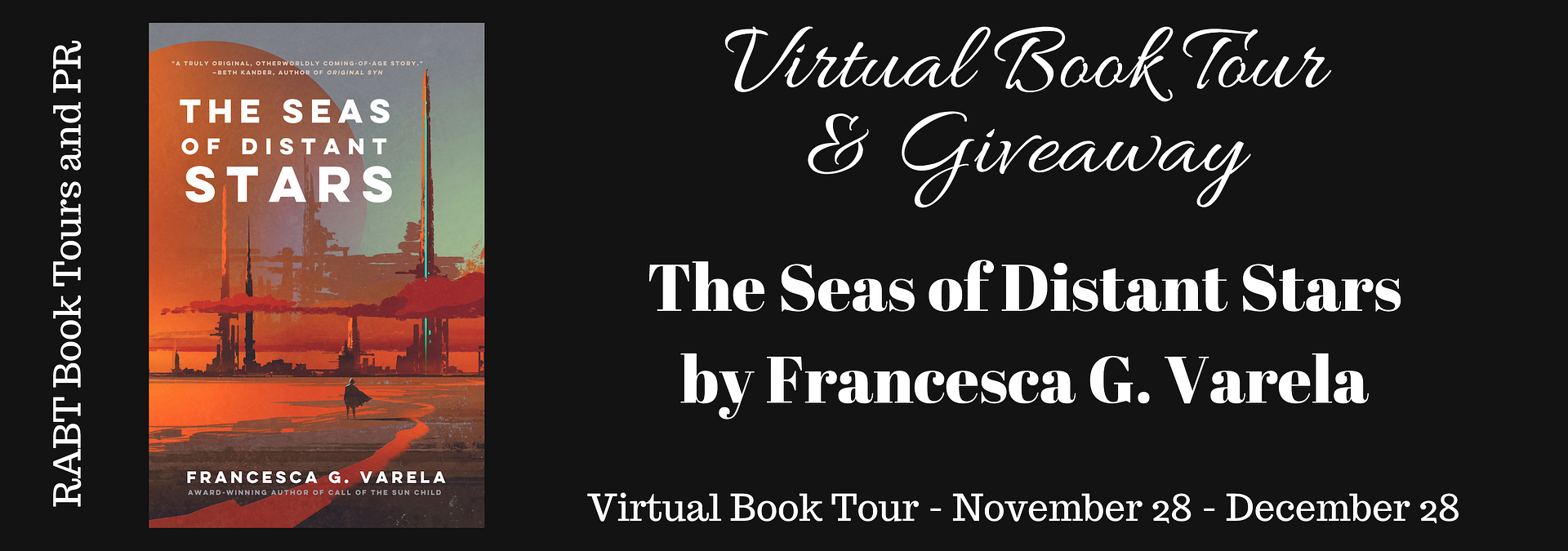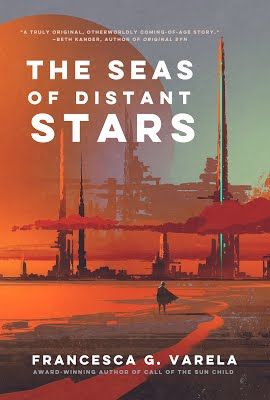 "[T]he story is unique in its setting, characters, and plot. It tackles human growing pains, like change and child-adult transitions, with a sense of rawness. I was also surprised with where the story was going." - Anita, Goodreads
"[T]he story is unique in its setting, characters, and plot. It tackles human growing pains, like change and child-adult transitions, with a sense of rawness. I was also surprised with where the story was going." - Anita, Goodreads
Description:
Published: August 7th, 2018
Agapanthus was kidnapped when she was only two years old, but she doesn’t remember it. In fact, she doesn’t remember her home planet at all. All she knows is Deeyae, the land of two suns; the land of great, red waters. Her foster-family cares for her, and at first that’s enough. But, as she grows older, Agapanthus is bothered by the differences between them. As an Exchanger, she’s frail and tall, not short and strong. And, even though she was raised Deeyan, she certainly isn’t treated like one. One day, an Exchanger boy completes the Deeyan rite-of-passage, and Agapanthus is inspired to try the same. But, when she teams up with him, her quest to become Deeyan transforms into her quest to find the truth―of who she is, and of which star she belongs to.
GUEST POST
Three Tips for Beginning Science-Fiction Writers
Growing up, I read all kinds of books, but my favorite genre was always realistic fiction. I liked reading about people just like me; characters I could relate to, who I had things in common with. It wasn’t until I started writing my own novels that I switched my allegiance from realistic fiction to science-fiction. Because, here’s the thing—the characters in good science-fiction are just as interesting and relatable as those in realistic/literary fiction; it’s the world they inhabit that’s different. And that’s what makes science-fiction so fun to write! You have the ability to create entire planets, and universes, and realms, and alternate dimensions. You can look into the future or change the past. Science-fiction is limitless!
Interested in trying your hand at science-fiction but not sure where to start? Here are three tips:
1. Build Your World - Whether your story takes place in the future, on an alien planet, or beneath the ocean, it’s best to spend time building up the setting. Before you even start writing, get the world straight in your head. Make a timeline of historical events. Draw a map. Figure out the food chain, the geography, the plant species, the ethnic groups, the religions, the cultures. Even if you don’t use all of this information in your book, it will help you develop a rich setting that feels real, complex, and believable.
2. Focus on the Characters - Regardless of genre, a story is only as good as its characters. The reader doesn’t have to like them, but they do have to find them interesting enough that they want to find out what happens to them. Take time to map out your character’s personality, likes/dislikes, childhood, and relationships. Do this for side characters as well. Make everyone “round,” and complex, and neither good nor evil. In a genre like science fiction, believable characters help ground the story and make it relatable to the reader.
3. Make Your Prose Sing - Just because it’s science fiction doesn’t mean it can’t be written in a literary style. Focus on prose. Use all your senses when you write. Use active language, switch up your sentence lengths, and try your best to show rather than tell. Don’t be afraid to be edgy with your prose. Experiment. Science fiction is more open to new things than many other genres. Use a tense you don’t normally use, or teeter on the edge of poetry with your descriptions. Writing is an art, and science fiction is no exception. Let yourself be creative!
Goodreads ** Amazon ** Barnes&Noble ** Kobo ** iTunes
About the author:
Francesca G. Varela was raised in Oregon’s Willamette Valley. In 2015 she graduated from the University of Oregon with degrees in Environmental Studies and Creative Writing, and she then went on to receive her master’s degree in Environmental Humanities from the University of Utah.
Francesca’s dream of becoming an author began in third grade, and her writing career had an early start; she wrote her award-winning first novel, Call of the Sun Child, when she was only 18 years old, and she wrote her second novel, Listen, when she was only 20.
When not writing or reading, Francesca enjoys playing piano, figure skating, hiking, identifying wild birds, plants, and constellations, and travelling to warm, sunny places whenever she can.
Author's Giveaway
thanks for hosting
ReplyDelete